It’s no secret there’s a lack of diversity in science, technology, engineering and mathematics —the STEM fields. That’s why F5 has been awarding annual grants since 2019 to nonprofits that help build the pipeline of STEM education and career opportunities for women and girls of color.
But nothing has changed today’s STEM fields more than the rapid ascent of AI, from education practices to scientific research to technology development. AI has also introduced ethical implications that require new approaches to ensure it is used responsibly and accessed equitably. As a result, the number of AI job openings globally has grown faster than the total talent pool. In some places, according to research from Bain & Company, as many as one in two AI jobs may be left unfilled in the near term. Business leaders say they’re already feeling the pinch.
Now more than ever, we need to ensure the pool of AI talent is as broad and accessible as possible.
That’s why we added AI as a new focus area for our granting this year. Our F5 STEM Education and Artificial Intelligence (AI) Grants award nonprofits that are working to build the pipeline of tomorrow’s innovators and open up opportunities for women and girls of color to access and shape AI’s transformative potential.
Today, we are thrilled to announce our 2025 STEM Education and AI Grant partners. These 10 nonprofits will each receive one-time unrestricted funds of $50,000 USD.
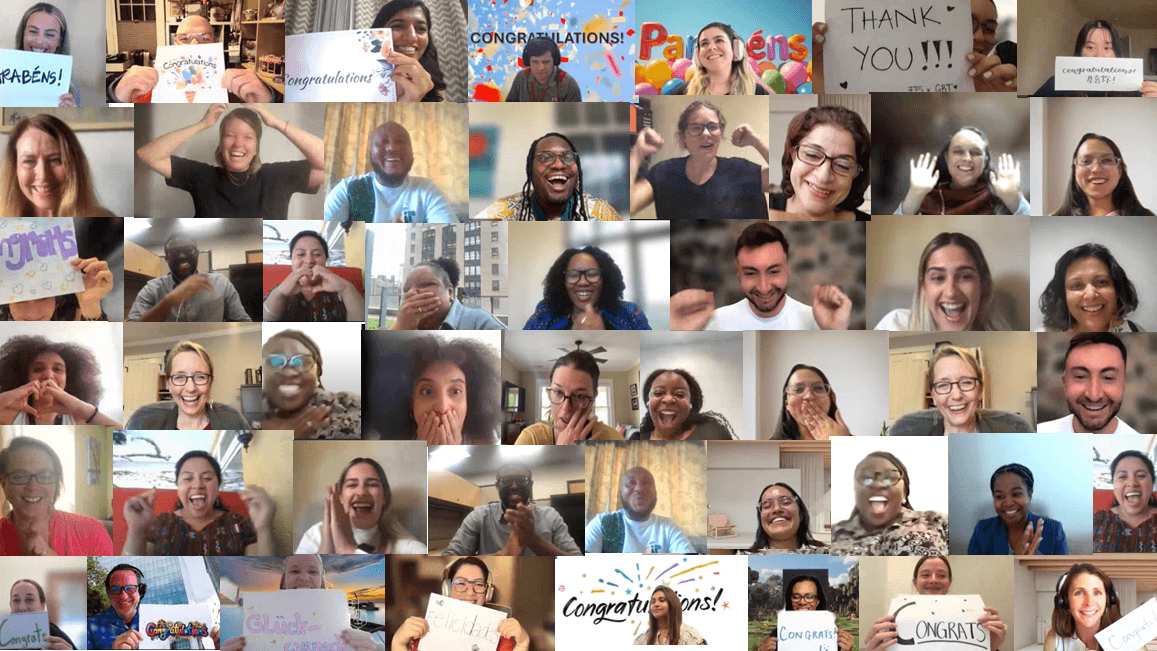
F5’s 2025 STEM Education and AI Grant partners respond to the good news that they received a $50,000 grant to support their STEM missions.
Who are this year’s grant partners?
Our STEM Education and AI Grant partners represent broad geographic diversity, including organizations based in Brazil, Ghana, Guatemala, Nepal, Singapore, Uganda and the United States. Their program offerings are diverse, as well. Some host science camps for schoolgirls and others offer STEM career coaching for women. There are robotics camps and hackathons and teacher trainings. One nonprofit gives young Indigenous girls their first opportunity to use a computer. Another offers online courses in AI-enabled coding and a fast-track to a job. Each organization demonstrates how STEM impacts the world we live in.
“This course has shown me that I have the power to create change,” one young program participant said.
Most of the nonprofits are small, with annual budgets under $1 million USD. But together, they’re helping over 50,000 women and girls of color develop STEM skills that they’ll carry with them for a lifetime.
Employee-driven grant selection
At F5, all employees are invited to select our grant partners, not just a small CSR team or one executive. This year, 52 employees, representing six F5 departments and 12 different countries, joined the STEM Education and AI Grant selection committee. It’s the largest grant committee so far, and the most diverse in terms of tenure and geography. Each member carefully considered grant applications, making clear their passion for this rewarding work.
We join the committee members in offering congratulations to F5’s 2025 STEM Education and AI Grant partners!
If you’d like your organization to be notified of next year’s grant opportunities, add your contact info here.
F5 2025 STEM and AI Education Grant Partners

Ada Developers Academy
United States
Founded to address a frustrating lack of diversity in tech, Ada Developers Academy offers women and gender-expansive people a fast track to a career. Serving primarily low-income students and other underserved populations, it offers coding education—including crucial AI-enabled coding—plus wraparound services to ensure students have what they need to learn full-stack web development, complete an internship, and find a tech career in one year.
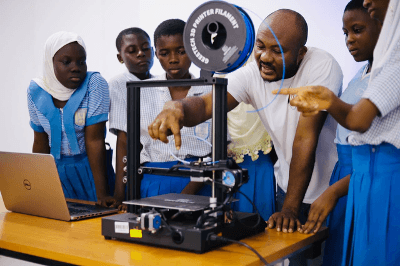
Africa ICT Right (AIR)
Ghana
AIR offers bootcamps and workshops that train girls in digital literacy, coding, robotics, AI, and data science, demonstrating their real-world applications. It doesn’t stop there. AIR also provides crucial AI training for schoolteachers, so they’re equipped to bring AI and STEM fundamentals into their classrooms.
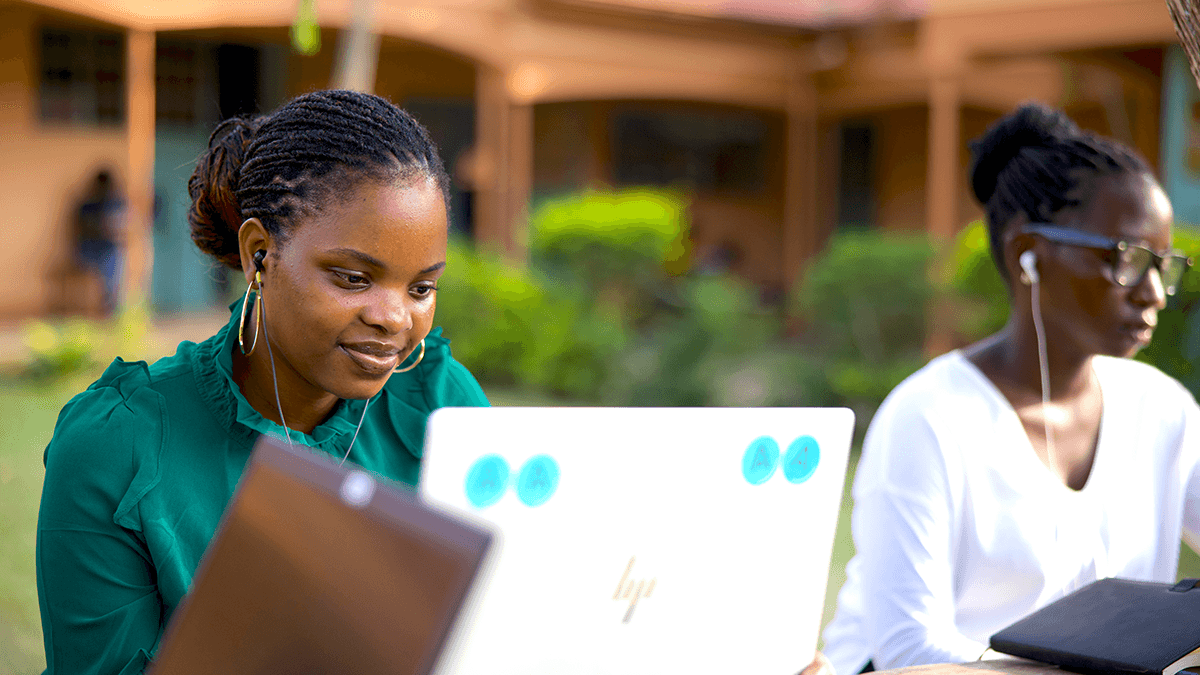
Groundbreaker Talents
Uganda
Groundbreaker serves financially challenged students from across the African continent on its residential tech campus. Here, promising young women, aged 18 to 25, can pursue one to two years of training in software engineering, AI, and business administration to launch their STEM careers. It also offers tech events, corporate mentors, and job placement help.
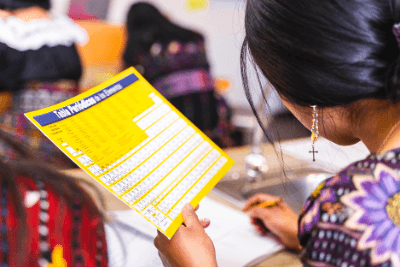
Photo courtesy of MAIA
MAIA
Guatemala |
Indigenous women from rural villages aren’t just underrepresented in STEM; they’re often excluded entirely. MAIA works annually with 400 “Girl Pioneers,” mainly from subsistence-farm families. Its multi-year program includes academic study, mentorship, leadership development, and workplace skills, with STEM concepts integrated into everything. The journey prepares the girls to pursue a university degree, a STEM career, or other professional paths. MAIA also trains local educators.
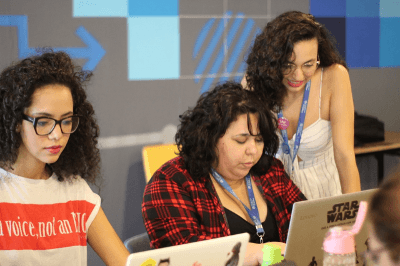
{reprograma}
Brazil
From basic digital literacy to tech workshops to long-term courses geared toward a career, {reprograma} aims to make the technology sector more inclusive. Since 2016, it has reached over 5,000 women and girls, many of whom are Black, Transgender, and from vulnerable communities.
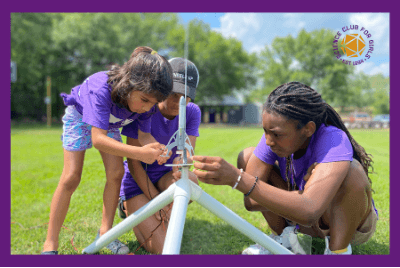
Science Club for Girls (SCFG)
United States
There’s a waiting list to get into this club. SCFG runs free programs that connect girls and gender expansive youth from underrepresented communities with STEM role models with similar backgrounds. Its rocketry programs, coding clubs, and immersive robotics and AI classes are all led by women in STEM fields and program alumnae who become junior mentors.
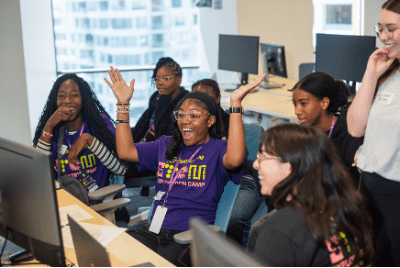
Self-eSTEM
United States
There’s long been a “leaky STEM pipeline” that drains girls and women from STEM fields, as well as a racial gap. Self-eSTEM helps girls and women develop confident STEM identities through culturally responsive camps, robotics competitions, AI programming courses, and more. Its workforce development programs support young women embarking on STEM careers.
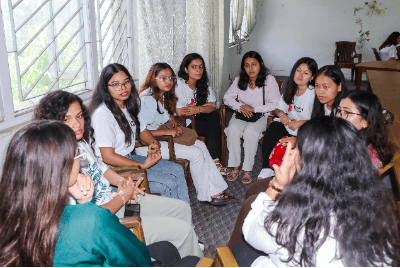
Shequal Foundation
Nepal
Shequal embraces a 360-degree approach to addressing the hurdles women and girls in Nepal face, in both their lives and their careers. It has hosted scores of physical and virtual events and trainings, helping women and girls improve digital literacy, learn AI concepts, analyze data for entrepreneurial opportunities, and connect with tech mentors. It also hosted Nepal’s largest all-female hackathon.
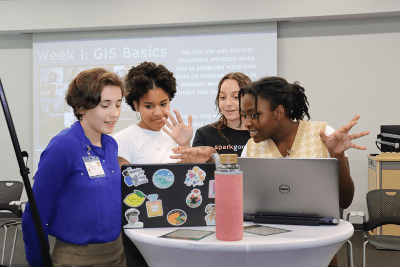
trubell&co
United States
The nonprofit trubell&co makes Geographic Information Systems (GIS) and AI fun, while also demonstrating how these technologies are useful in social justice. Using real-world data, its students—mainly youth of color—learn to map issues such as economic disparities, climate risks, housing inequities, and more, creating visuals that can impact government policy.
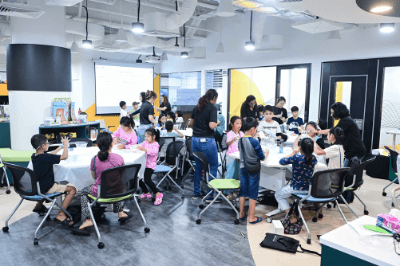
United Women Singapore
Singapore
Last year, Singapore’s government laid out a detailed national strategy to triple its AI workforce. United Women Singapore wants to ensure women are part of that transformation. It offers skills workshops, STEM events, and more, all designed to build confidence and job-readiness among low-income women and girls aged 12 to 25.
About the Author
Related Blog Posts

Why sub-optimal application delivery architecture costs more than you think
Discover the hidden performance, security, and operational costs of sub‑optimal application delivery—and how modern architectures address them.

Keyfactor + F5: Integrating digital trust in the F5 platform
By integrating digital trust solutions into F5 ADSP, Keyfactor and F5 redefine how organizations protect and deliver digital services at enterprise scale.

Architecting for AI: Secure, scalable, multicloud
Operationalize AI-era multicloud with F5 and Equinix. Explore scalable solutions for secure data flows, uniform policies, and governance across dynamic cloud environments.

Nutanix and F5 expand successful partnership to Kubernetes
Nutanix and F5 have a shared vision of simplifying IT management. The two are joining forces for a Kubernetes service that is backed by F5 NGINX Plus.

AppViewX + F5: Automating and orchestrating app delivery
As an F5 ADSP Select partner, AppViewX works with F5 to deliver a centralized orchestration solution to manage app services across distributed environments.
F5 NGINX Gateway Fabric is a certified solution for Red Hat OpenShift
F5 collaborates with Red Hat to deliver a solution that combines the high-performance app delivery of F5 NGINX with Red Hat OpenShift’s enterprise Kubernetes capabilities.